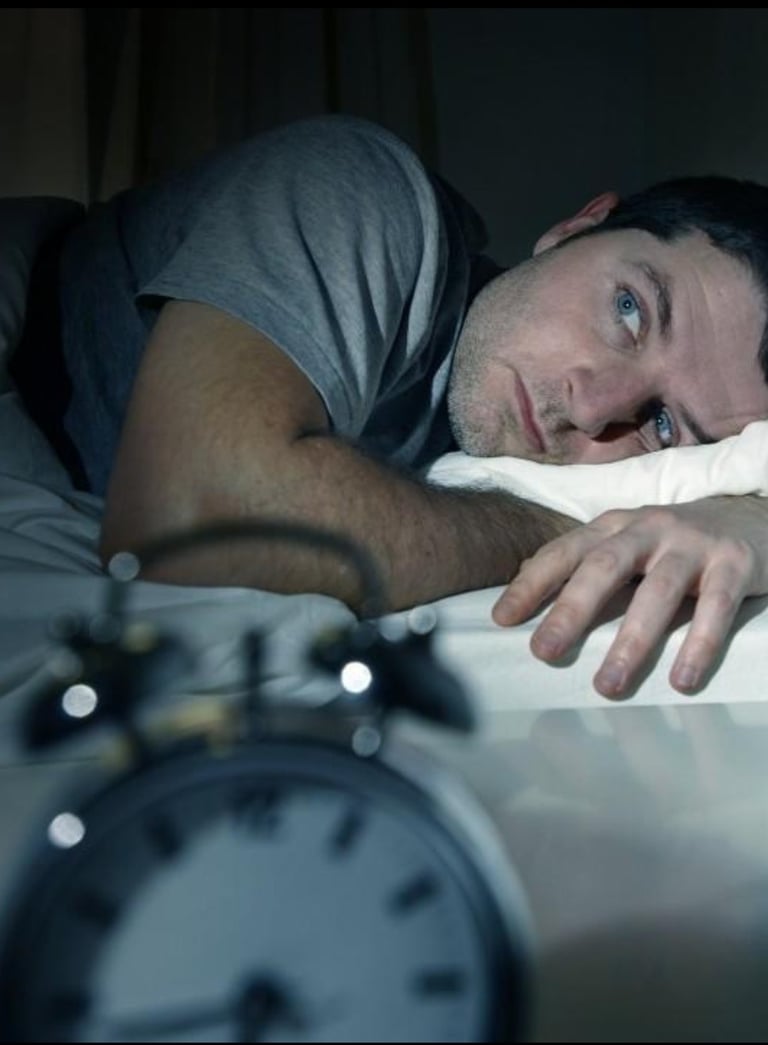Insomnia: A Common Sleep Disorder
Insomnia: A Common Sleep Disorder" that affects millions of people worldwide. Characterized by difficulty falling asleep, staying asleep, or experiencing non-restorative sleep.
HEALTH & WELLNESS
K.N.
7/11/20254 min read


What is Insomnia?
Insomnia is a common sleep disorder that affects millions of people worldwide. Characterized by difficulty falling asleep, staying asleep, or experiencing non-restorative sleep. Understanding the causes, effects, and available treatments for insomnia is crucial for promoting overall health and well-being. In this article, we will delve into the various aspects of insomnia, including its definitions, underlying causes, impact on physical and mental health. Treatment options ranging from medications to cognitive behavioral therapy. Lifestyle changes that can improve sleep quality, and tips for managing insomnia symptoms effectively. Let's explore the world of insomnia to shed light on this prevalent and often debilitating condition.
Insomnia, aka the annoying sleep thief, is a common sleep disorder that makes it hard for you to fall asleep, stay asleep, or get quality sleep. It's like trying to catch a slippery fish in a pond but, you know, less fun.
Types of Insomnia
Acute Insomnia: Short-term and usually caused by stress or a specific event, like waiting for Game of Thrones to finally have a good ending.
Chronic Insomnia: A long-term battle that can feel like a never-ending sleepless slumber party. It's like a clingy friend that just won't leave.
Causes of Insomnia
Stress and Anxiety: Imagine your brain is a hamster on a wheel, and that wheel is spinning at 100 miles per hour. That's pretty much what stress and anxiety do to your mind, making it hard to chill out and catch some Z's.
Medical Conditions: Sometimes pesky health issues, like asthma, arthritis, or acid reflux, can crash your slumber party. It's like they RSVP'd without your permission and now won't leave.
Medications: Certain meds, like those for allergies, depression, or high blood pressure, can crash your snooze fest. It's like they're the party poopers no one invited.
Effects of Insomnia on Health
Physical Health Impacts
Persistent insomnia can lead to a weakened immune system, making individuals more susceptible to illnesses and infections. Lack of adequate sleep can affect hormone levels, leading to weight gain and an increased risk of chronic conditions such as diabetes and heart disease. Additionally, the cognitive impairments caused by insomnia can impair coordination and decision-making skills, increasing the risk of accidents and injuries.
Mental Health Impacts
Also lack of sleep can turn your brain into a foggy mess, making you feel like a zombie stuck in a room-com. It's a surefire way to welcome irritability, mood swings, and a general lack of enthusiasm for adulting. Chronic sleep issues can worsen anxiety and depression. Creating a vicious cycle. It's like a double whammy for your well-being.
Treatment Options for Insomnia
Medications for Insomnia
Medications can be a valuable tool in helping individuals achieve restful sleep. From prescription drugs like benzodiazepines and nonbenzodiazepines to over-the-counter options such as melatonin supplements, there are a variety of options available depending on the severity of the condition. It's important to consult with a healthcare professional before starting any medication regimen for insomnia, as they can help determine the best course of treatment based on individual needs and health history.
Natural Remedies and Supplements
When it comes to treating insomnia, natural remedies and supplements can be highly effective alternatives to traditional medication. From melatonin supplements that help regulate sleep-wake cycles to chamomile tea that has relaxing properties. There is a myriad of options available. Also, valerian root, passionflower, and lavender essential oil are all known for their calming effects on the body and mind, promoting a restful night’s sleep. Additionally, magnesium and L-theanine have been shown to reduce anxiety and improve quality of sleep.
Lifestyle Changes to Improve Sleep
Sleep Hygiene Practices
This includes maintaining a consistent sleep schedule by going to bed and waking up at the same time each day, even on weekends. Creating a relaxing bedtime routine, limiting exposure to electronic devices before bedtime is imperative as the blue light emitted from screens can interfere with the production of melatonin, the hormone responsible for regulating sleep. Additionally, creating a comfortable sleep environment free of distractions, such as excessive noise or light, can promote better quality sleep.
Diet and Exercise Effects
Research has shown that a combination of diet and exercise can have a significant positive impact on insomnia. Regular exercise has been proven to improve sleep quality. By regulating the body's internal clock, reducing stress, and promoting relaxation. Additionally, foods like leafy greens, nuts, seeds, whole grains, and lean proteins can aid in calming the nervous system and promoting restful sleep. Also, eating lighter meals closer to bedtime and getting some exercise during the day can help regulate your sleep patterns.
Cognitive Behavioral Therapy for Insomnia
How CBT-I Works
CBT-I might sound like a high-tech robot, but it's actually a fancy term for a therapy that helps you develop good sleep habits and bust those pesky negative thought patterns that keep you tossing and turning at night. It's like a sleep makeover for your brain.
Benefits of CBT-I
With CBT-I, you can wave goodbye to counting sheep and hello to restful nights. By tackling the root causes of your sleep struggles and teaching you skills to improve your sleep, CBT-I can be a game-changer for those battling insomnia. Bring on the ZZZs!
Managing Stress and Anxiety
Stress and anxiety can be major sleep stealers, but you don't have to let them rule your nights. Techniques like deep breathing, mindfulness, and journaling can help calm your mind and body, paving the way for a peaceful night's sleep. Who knew a little me-time could be the key to better ZZZs? In conclusion, insomnia can significantly impact an individual's quality of life and overall health. By gaining a better understanding of this sleep disorder and implementing appropriate strategies, such as lifestyle changes, therapy, and proper sleep hygiene practices, it is possible to effectively manage insomnia and improve sleep quality. So, remember that seeking professional guidance and support can make a difference in addressing insomnia and promoting restful and rejuvenating sleep. Good sleep is essential for our well-being, so prioritize your sleep health to lead a more fulfilling and energized life.
Thanks for reading
Subscribe, read new articles and support our work along the way.
Similar Posts
Life Is Tough Make It Chillable!
LITMICH © 2025. All rights reserved.


Please follow us & like us:
Contact Us
